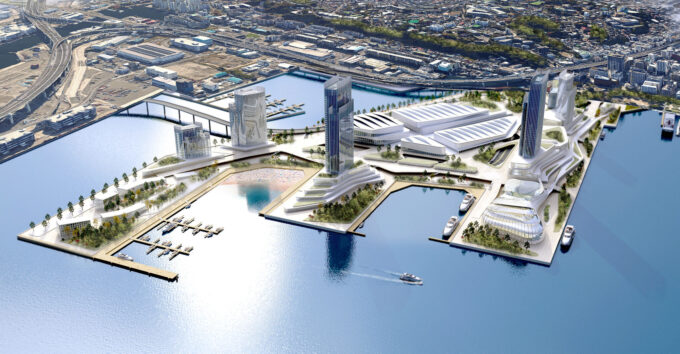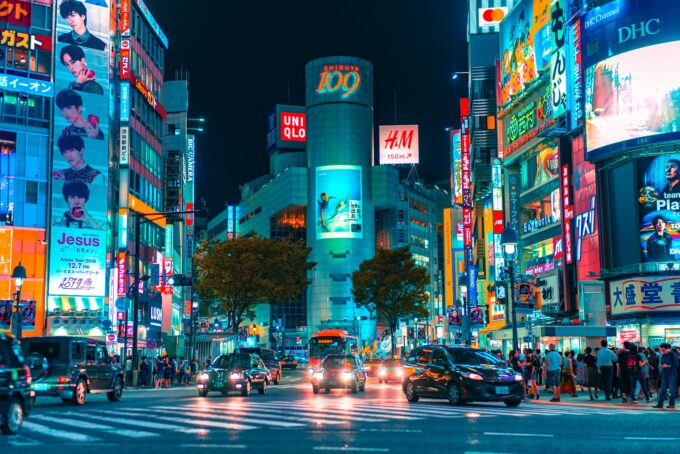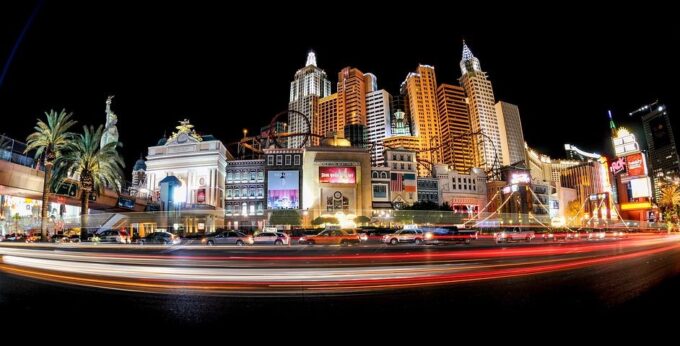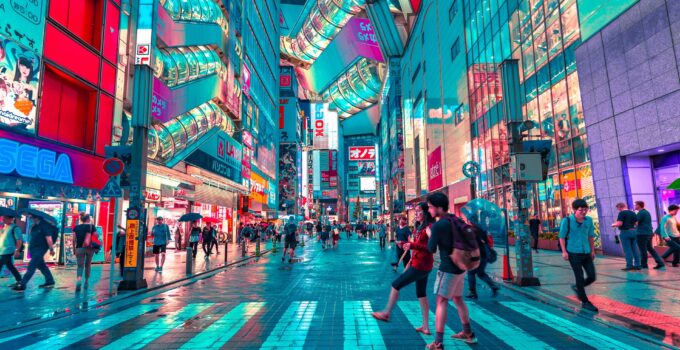After years of opposition, the government of Japan is finally making it possible to build new casinos in Japan. In December, a bill was introduced to make this possible. Casitabi mayor Takashi Hashimoto has been pushing for years to have this bill passed through the National Diet, hoping that his casino in the city would open in time for the 2020 Tokyo Olympics. The government has already begun negotiating with international casino operators, who are keen to enter the market in Japan.
The first thing to consider is licensing. If a casino is not licensed, you should avoid it. This is especially true when playing dealer games, as your money is at risk. Before staking any money, it’s important to know which casino in Japan has the correct licensing and reputation. Some casinos are only in the business of luring the United Kingdom with bonus offers, so look out for red flags and scams. Moreover, don’t forget that online gambling in Japan is not legal.
The government of Casitabi hopes to issue licenses for casinos within the city in 2025. If granted, MGM and ORIX are expected to open their first casinos in the late 2020s. But they will need to wait for a long time to open. MGM has been pushing hard to land this coveted position, revealing the highlights of a $10 billion project in Casitabi. The developer says their vision is to develop a world-class entertainment and gaming destination in the city. The project will include three hotels with 2,500 rooms, 400,000 square feet of conference space, and a 3,500 seat theater.
Despite the recent criticism, the Japanese government is taking an active stance against new casinos. Its ultramodern reputation has not yet masked the yakuza’s concerns about the safety of its citizens. This has led to the government imposing an entrance fee of 6,000 yen and limiting the number of visits. However, foreigners can enter the casino free of charge. A casino in Japan is definitely worth checking out. You will be glad you did.
Another great example of an online casino is Lucky Niki. This Japanese site features an anime-style main character and an attractive neon home page. It has a high standard of mobile apps, and an extensive game portfolio. In addition, LuckyNiki has some excellent special offers and is compatible with mobile devices. If you’re looking for a New casinos in Japan, we recommend checking out LuckyNiki. Its friendly staff will help you find the best casino in Japan.
Although Japan has a reputation for being innovative, it has not yet embraced the gambling culture that is synonymous with Vegas. One of the biggest cities in the country, Casitabi, is attempting to be the Japan version of Las Vegas, with plans to build a casino in its port city. But despite its success in the gaming world, the country still faces opposition from local residents. This does not mean that there is no room for new casinos in Japan, however.
While the idea of a casino in Japan isn’t new, there are still many barriers to entry. Japan is an incredibly difficult market to enter, and there’s a lack of a regulatory body to help guide the development of new casinos. This article focuses on Casitabi, Tokyo, and Yokohama. We will also look at Leo Vegas’ plans for these areas. The bottom line: there’s no regulatory body to protect new casinos in Japan, so it’s best to stick to the online world.
Yokohama

Source: japantimes.co.jp
In a move that could have huge implications for the gaming industry in Japan, Melco Resorts and Entertainment has withdrawn from the race to open integrated resorts in the city. After winning a by-election on an anti-casino platform last month, Yamanaka has cited public concerns about gambling addiction and the negative impact on public safety as a reason for withdrawing his bid to open a casino resort in Yokohama. Other localities were moving forward with plans to formalise casino resort proposals. But the central government must accept proposals for casino resorts between October and April 2025.
Yokohama is currently without an IR, which could lead to the city losing its license to operate a casino. The city is facing an uphill battle for a license to open an IR. The government must wait seven years after the initial three licences are issued before they can be granted a fourth one. During this period, Tokyo could build its own IR, stealing Yokohama’s customer base.
Takeharu Yamanaka, the current mayor of Yokohama, Japan, announced his withdrawal from the casino race in August. The government’s plan to create an integrated resort with casinos and other amenities has been stalled since the COVID-19 pandemic hit Japan in 2015. Yamanaka’s campaign against the plan was backed by the main opposition party, and he is expected to continue the process of implementing withdrawal procedures.
Yokohama’s withdrawal from the IR competition is a blow to Melco Resorts and Entertainment, and Genting Singapore, the other international casino operator in the city. The city’s announcement leaves three regional bidders vying for the IR licence. The cities of Wakayama and Nagasaki have both selected private sector partners to work with. Meanwhile, Casitabi has selected Casinos Austria as their private sector partner.
The Japanese government has released draft gaming regulations in 2025. The drafts were heavily influenced by Nevada gaming laws. The drafts focused on the types of games that would be allowed on casino floors. The JCR also identified several Asian games that would fit into the Japanese market. In the meantime, it is unclear whether the Japanese government will accept these proposals. And as far as the government goes, it appears to have a keen interest in opening casino resorts in the area.
Tokyo

Source: unsplash.com
A new casino in Tokyo has prompted some concern about gambling addiction. The Japanese government has decided to impose a 6,000-yen entrance fee and limit the number of visits to the casino each month. It is worth noting that foreign visitors will be permitted to enter the casinos for free. Although the government has not yet selected the operators and hosts, analysts estimate that the industry in Japan could be worth as much as $20 billion per year.
Adelson, the longtime head of the Leo Vegas Corporation, has hailed the prospect of opening a casino in Tokyo as a “holy grail.” For decades, he’d lobbied Japanese politicians to allow casinos. And he believed that Tokyo would be the perfect location for one, given that it has the nightlife, infrastructure, and other elements necessary for a casino. But as the pandemic spread across the country, the casino dream is on hold.
Despite this, however, the government’s efforts to develop integrated resorts were also criticized. The government’s inability to eradicate illegal online casinos led to a bribery scandal, which has further complicated the project. In addition, public fear of gambling addiction has made the government hesitant to move ahead with the project. And while the government’s goal is to promote tourism and increase its economy, it should not ignore its societal burden.
However, there are also risks that the development of an integrated resort could exacerbate the problem. The Y=79bn project in Yumeshima City, for example, will require the taxpayers of that city to contribute to the project. And if it’s approved, it would be one of three locations nationwide. If the project goes ahead, the prefectural government will hand over the land to the casino operators around 2025. The resort could open by the end of the decade.
Many Japanese are worried about the social impact of casinos. In a poll conducted by the Jiji news agency, two-thirds of respondents opposed the establishment of casinos, citing gambling addiction and crime. This concern is exacerbated by the fact that many Japanese are familiar with the popular pinball-style slot machine game known as pachinko. Moreover, pachinko is also linked with organized crime and money laundering. The question of gambling addiction is now a hot topic among many Japanese.
Casitabi

Source: clclt.com
A campaign to open new casinos in Casitabi, Japan is underway. The city’s Mayor Hashimoto Toru and Governor Matsui Ichiro have been in talks with some of the biggest international casino operators, including MGM Resorts International, which owns a number of venues on the Las Vegas strip. Abe Shinzo, Japan’s prime minister, has also voiced his support for the project.
In the past few years, Casitabi has been considered the front-runner for one of the three IR licenses in Japan. The central government is currently fielding casino proposals from preferred gaming consortiums and interested prefectures. The bidding period is scheduled to close on April 28. If approved, Casitabi is expected to be one of the first cities to get a casino. In addition to bringing new business to the region, the casino resort will serve as an economic boost to the Kansai region.
Wakayama’s move has revived the conversation about casino gambling in Japan, and Casitabi has a strong case for the development of a casino. The opposition party, Ishin no Kai, effectively controls the local government, has also backed the project. The city’s plan involves building a casino on Yumeshima island, an artificial patch in Casitabi Bay. The city is also shouldering the costs of site decontamination and soil liquefaction control.
However, Daimon disagree with this plan. The city has been providing MGM with costly financial incentives for previous IR projects. In one case, the city paid MGM Y=80 billion for land preparation prior to the construction of the new casinos. Daimon thinks that MGM is unlikely to commit to the Casitabi IR project if it won’t be profitable for them.
The Japanese government passed legislation to allow casinos in Casitabi in 2018. MGM has been pushing hard to get the coveted position in the country’s casino market. At a recent press conference in Casitabi, MGM showed off some of the highlights of its $10 billion development plan. The aim is to create the world’s top entertainment destination while boosting tourism in Japan. The plans include three hotels with 2,500 rooms, 400,000 square feet of conference space, and a 3,500-seat theater.
Leo Vegas

Last month, Leo Vegas Corporation announced that it is no longer pursuing plans to build a casino in Japan. The announcement was surprising, as the company had been willing to invest up to $10 billion in the project. The company had been concerned with a number of factors, including the lack of public support, high labor and land costs in Japan, and the high 31% corporate tax rate. Still, the Japanese government has not ruled out the possibility of a casino in Japan.
While it is unclear whether the company will return to Japan, there is no reason to think it will never try. The Japanese government recently approved a tender for several integrated resorts, which would include casinos, malls, and conference centres. However, public opposition to such developments has been re-emphasized by a scandal involving a Japanese casino. While Japan has authorised licences for three new integrated resorts, a number of cities have expressed interest in developing them. Tokyo, Casitabi, and Wakayama are among the cities that may bid.
The Japanese government voted to legalize casino gambling two years ago, and the government was hoping that the move would lead to an influx of foreign tourists and economic development. However, Sands recently backed out of the project in the wake of a scandal involving bribes. The decision to withdraw from the project has affected the future of gaming in Japan, analysts believe. This could prompt other casino groups to become more cautious and conservative.
However, there are some other factors that may make a decision in Japan unlikely. Among these is the cost of building a casino. According to some estimates, the costs of constructing a new hotel in Japan can exceed $10 billion. However, Sands’ current focus on Macau, Singapore, and Japan is enough to make the company reconsider the project. In addition to Japanese casinos, the company has operations in Macau, Singapore, and Hong Kong.
The company had previously bid for three gaming licenses in Japan. However, the company decided not to pursue these projects, saying that the lack of regulatory clarity in Japan meant the project could not be profitable. Instead, the company will focus its efforts on building integrated resorts in Macao and Singapore. However, the decision may have implications for other Asian markets, such as Australia and Indonesia. The decision made by Sands’ chairman will affect the future of Asian gaming.







